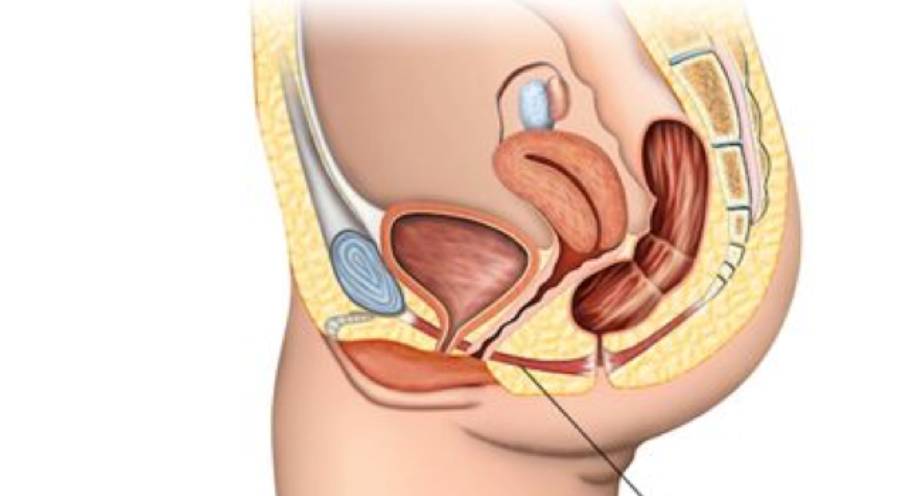We’ve all heard of weak pelvic floors, but do you really know what exactly a weak pelvic floor is? Today, we’re here to tell you everything you need to know about weak pelvic floors. We’ll also offer you three signs to look out for that suggest you might have a weak pelvic floor and then provide you with ways to help. We have a variety of ways for you today, ranging from CBD bath salts to taking medication to help regulate bowel movements. To figure out whether you have a weak pelvic floor and how to fix it, keep on reading.
What is a Weak Pelvic Floor?
Before we get into it, let’s define what a weak pelvic floor is. Essentially, the pelvic floor is the family of muscles located at the foundation of your pelvis. In other words, it is the bottommost muscles of the area that houses organs like the bladder, bowel, and uterus or prostate. A weak pelvic floor is exactly what you might guess – weak muscles at the bottom of the pelvis. Imagine a house with weak floors that bend and are not sturdy. This doesn’t seem like a secure house and can affect all other parts of the house, like the furniture and walls. A weak pelvic floor affects other parts of your body, too.
Signs You Have a Weak Pelvic Floor
The real-life effects that having a weak pelvic floor can have on you are numerous. In fact, some of the side effects of a weak pelvic floor can drastically affect your quality of life, so it’s very important to know whether you have a weak pelvic floor and how to fix it. Now, let’s move on to the signs you have a weak pelvic floor.
1. Peeing a Little When You Cough or Sneeze
The first sign that you have a weak pelvic floor is that when you cough, sneeze, or do another activity that involves harsh movements, you accidentally pee a little. This may have happened to you once or twice in your life, and that doesn’t mean you have a weak pelvic floor, but if this is something that happens to you regularly on a consistent basis, then you might want to consider researching how you can strengthen your pelvic floor to stop this from happening.
2. Painful Sex
The second warning sign of a weak pelvic floor is that sex is painful for you. Again, there are always exceptions to this, such as how often you have sex and whether you have endometriosis, but if experiencing pain during sex is normal for you, you might have a weak pelvic floor. This pain during sex comes from the inability to properly relax and coordinate your pelvic muscles.
3. Irregular Bowel Movements
Thirdly, a telltale sign of a weak pelvic floor is irregular bowel movements. The bowels and anus are part of the pelvic organ family, so if your pelvic floor is weak, then those muscles will be, too. Irregular bowel movements can be extremely frustrating and distracting, and for a lot of people, this is their main reason for seeking treatment for a weak pelvic floor.
How to Help With a Weak Pelvic Floor
Now that we’ve gone over some signs you have a weak pelvic floor, let’s talk about what you can do to help yourself and make life as comfortable as possible as you deal with having one.
CBD Bath Salts
CBD bath salts are extremely helpful for people with weak pelvic floors. As mentioned, a weak pelvic floor is often associated with pain around the pelvic region, and CBD bath salts can help relieve that pain. CBD helps relax the muscles, soothing and providing relief in the pelvic region. Once you try CBD bath salts for the first time to help with your weak pelvic floor, you’ll never want to go back.
Pelvic Floor Exercises
There are a number of useful pelvic floor exercises you can do to actually strengthen your pelvic floor muscles. These exercises can be done from the comfort of your own home, or you can refer to a pelvic floor physical therapist for a more detailed exercise regimen. By doing these exercises, you can actually help diminish the negative side effects that come with a weak pelvic floor.
Medication for Regular Bowel Movements
Lastly, if you struggle with irregular bowel movements due to a weak pelvic floor, certain medications might be of use. You’ll need to see a doctor and have them prescribe medication, but we encourage you to do this if you can’t seem to find relief from annoying irregular bowel movements caused by a weak pelvic floor.
Conclusion
We hope this article has helped you determine whether you have a weak pelvic floor and, if you do, how to lessen the negative side effects. Remember, always see your local healthcare physician before trying any new treatments.





